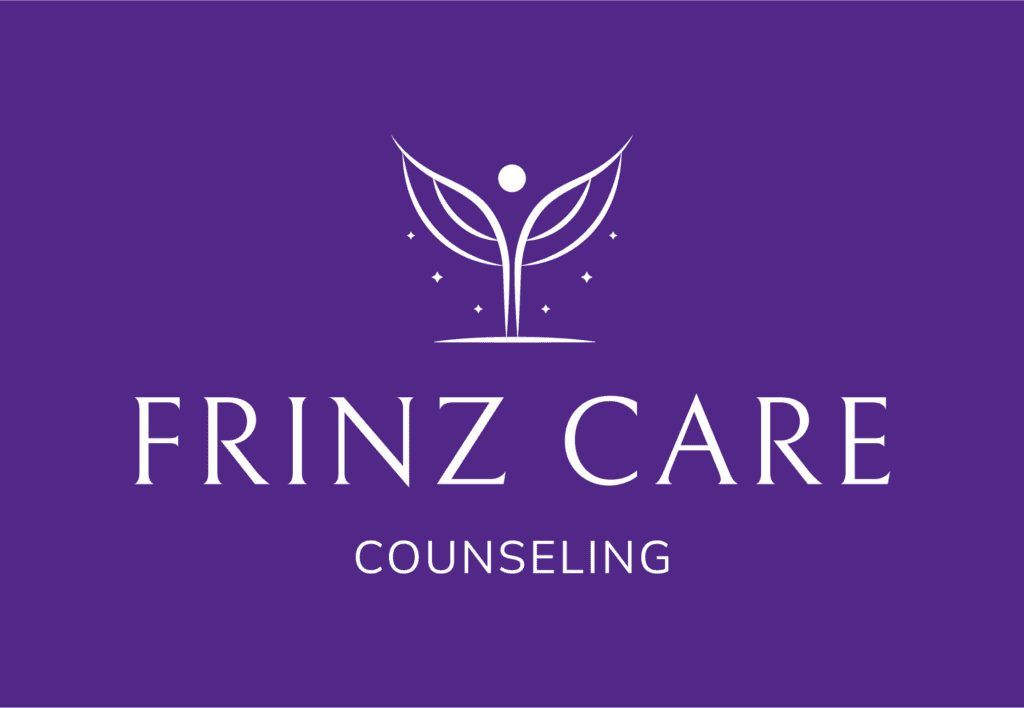In a world where stress and anxiety are increasingly prevalent, seeking effective treatment options is paramount for maintaining mental well-being. One approach gaining traction is the combination of therapy and medication for anxiety management. In this article, we delve into the profound benefits of integrating these two treatment modalities. While therapy provides invaluable tools for understanding and coping with anxiety triggers, medication offers physiological support by addressing chemical imbalances in the brain. Together, they form a powerful synergy that can significantly alleviate symptoms and enhance overall quality of life for individuals grappling with anxiety disorders. By exploring the symbiotic relationship between therapy and medication, we aim to shed light on the holistic approach to anxiety treatment, empowering readers to make informed decisions about their mental health journey. Join us as we uncover the transformative potential of this integrative approach in mitigating the debilitating effects of anxiety.
The Advantages of Therapy and Medication Fusion in Anxiety Care
Anxiety is a pervasive mental health challenge that affects millions of individuals worldwide. Its impact can be profound, interfering with daily life and diminishing overall well-being. Fortunately, in the realm of anxiety care, there exists a powerful synergy between therapy and medication. By combining these two approaches, individuals can access a comprehensive toolkit for managing and alleviating anxiety. Let’s explore the advantages of integrating therapy and medication in anxiety care.
Comprehensive Treatment Approach
One of the primary advantages of therapy and medication fusion in anxiety care is the ability to address the condition from multiple angles. therapy, whether in the form of cognitive-behavioral therapy (CBT), exposure therapy, or mindfulness-based approaches, offers individuals the opportunity to explore the root causes of their anxiety, challenge negative thought patterns, and develop coping strategies. Meanwhile, medication provides physiological support by targeting neurotransmitter imbalances and alleviating symptoms such as excessive worry, restlessness, and irritability. By combining these two modalities, individuals receive a comprehensive treatment approach that targets both the psychological and physiological aspects of anxiety.
Increased Effectiveness
Research has shown that the combination of therapy and medication can be more effective in treating anxiety than either approach alone. Therapy provides individuals with the skills and insights necessary to manage their anxiety symptoms in the long term. By learning how to identify triggers, challenge irrational beliefs, and implement relaxation techniques, individuals gain a sense of empowerment and resilience. Additionally, medication can provide immediate relief from acute symptoms, allowing individuals to engage more fully in the therapeutic process. By addressing both the underlying causes and immediate symptoms of anxiety, the fusion of therapy and medication increases the likelihood of positive treatment outcomes.
Enhanced Symptom Management
Another advantage of therapy and medication fusion in anxiety care is enhanced symptom management. While therapy focuses on addressing the underlying causes of anxiety and developing coping strategies, medication can help individuals manage symptoms such as panic attacks, insomnia, and intrusive thoughts. For example, selective serotonin reuptake inhibitors (SSRIs) and serotonin-norepinephrine reuptake inhibitors (SNRIs) can help alleviate symptoms of generalized anxiety disorder (GAD) and panic disorder, while benzodiazepines may provide relief during acute episodes of anxiety or panic. By combining therapy and medication, individuals can experience more comprehensive symptom relief, allowing them to function more effectively in their daily lives.
Improved Treatment Adherence
One often overlooked advantage of therapy and medication fusion in anxiety care is improved treatment adherence. Many individuals may be hesitant to seek treatment for anxiety or may struggle to comply with treatment recommendations. However, the combination of therapy and medication can make treatment more accessible and appealing to individuals who may be reluctant to engage in therapy alone or who may be concerned about the side effects of medication. Additionally, therapy can help individuals address any concerns or misconceptions they may have about medication, leading to greater acceptance and adherence to treatment recommendations.
Empowerment and Self-Management
Finally, therapy and medication fusion in anxiety care can empower individuals to take an active role in their treatment and self-management. Through therapy, individuals learn valuable skills and strategies for managing their anxiety symptoms, reducing reliance on medication over time. Additionally, medication can provide individuals with the support they need to engage fully in therapy and implement the skills they learn. By combining these two approaches, individuals gain a sense of control over their anxiety and develop the confidence to manage their symptoms effectively, even in the face of challenges.
Finding Balance: Integrating Therapy and Medication for Anxiety Management
Anxiety, with its relentless grip on the mind and body, can disrupt every facet of life. From intrusive thoughts to physical symptoms, its impact can feel overwhelming. Yet, amidst the chaos, there exists a path to stability and well-being: the integration of therapy and medication. In this exploration, we delve into the concept of finding balance in anxiety management through the harmonious combination of therapy’s insights and medication’s support.
The Role of Therapy
Therapy serves as the foundation of anxiety management, providing a safe and supportive environment for exploration and healing. Through modalities such as cognitive-behavioral therapy (CBT), dialectical behavior therapy (DBT), and mindfulness-based therapy, individuals gain insight into their thought patterns, learn coping skills, and develop resilience in the face of adversity. Therapy fosters self-awareness, empowers individuals to challenge distorted thinking, and equips them with tools to navigate life’s challenges with grace and confidence.
The Power of Medication
In tandem with therapy, medication plays a crucial role in alleviating symptoms and restoring balance to the nervous system. Antidepressants, benzodiazepines, and beta-blockers are among the medications commonly prescribed for anxiety management. By targeting neurotransmitters and regulating physiological responses, medication can reduce the intensity and frequency of panic attacks, intrusive thoughts, and physical symptoms, enabling individuals to engage more fully in therapy and daily life.
Integrating Therapy and Medication
The true power of anxiety management lies in the integration of therapy and medication. Therapy provides the groundwork for understanding and addressing underlying issues, while medication offers immediate relief and stability. Together, they form a comprehensive approach that addresses both the psychological and physiological aspects of anxiety, fostering a sense of balance and well-being.
Finding Personalized Solutions
It’s important to recognize that there is no one-size-fits-all approach to anxiety management. Each individual’s journey is unique, requiring personalized treatment plans tailored to their specific needs and preferences. By working closely with therapists and healthcare providers, individuals can explore different modalities, adjust medication dosages, and fine-tune their approach to finding the right balance for optimal well-being.
Embracing the Journey
Anxiety management is not a destination but a journey, marked by ups and downs, breakthroughs, and setbacks. By embracing the integration of therapy and medication, individuals can navigate this journey with resilience, grace, and self-compassion. They learn to recognize their strengths, confront their fears, and cultivate a sense of balance that empowers them to lead fulfilling and meaningful lives.
Thriving Beyond Anxiety: The Role of Therapy and Medication in Sustained Wellness
Anxiety can be a formidable foe, but with the right tools and support, it’s possible to not just manage it but thrive beyond it. Therapy and medication play pivotal roles in this journey towards sustained wellness. Let’s explore how their integration empowers individuals to break free from the shackles of anxiety and embrace a life filled with resilience and vitality.
- Comprehensive Approach: Therapy and medication offer a comprehensive approach to anxiety treatment, addressing both the psychological and physiological aspects of the condition.
- Therapy’s Insight: Therapy helps individuals uncover the root causes of their anxiety, develop coping strategies, and build resilience in the face of challenges.
- Medication’s Support: Medication provides stability by alleviating acute symptoms and rebalancing neurotransmitters, enabling individuals to engage more fully in therapy and daily life.
- Synergy in Action: The integration of therapy and medication creates a synergy that enhances treatment outcomes, offering a holistic path towards sustained wellness.
Thriving beyond anxiety is not just a possibility but a reality with the integration of therapy and medication.
Conclusion
Frinz Care in Austin, Texas, USA, we firmly believe in the efficacy of combining therapy and medication for anxiety treatment. Our holistic approach recognizes the unique needs of each individual, offering a comprehensive solution that addresses both the psychological and physiological aspects of anxiety disorders. By integrating therapy sessions with appropriate medication, we empower our clients to achieve long-lasting relief and improved mental well-being. At Frinz Care, our commitment to personalized care ensures that every individual receives the support and resources they need to thrive on their journey towards better mental health.


